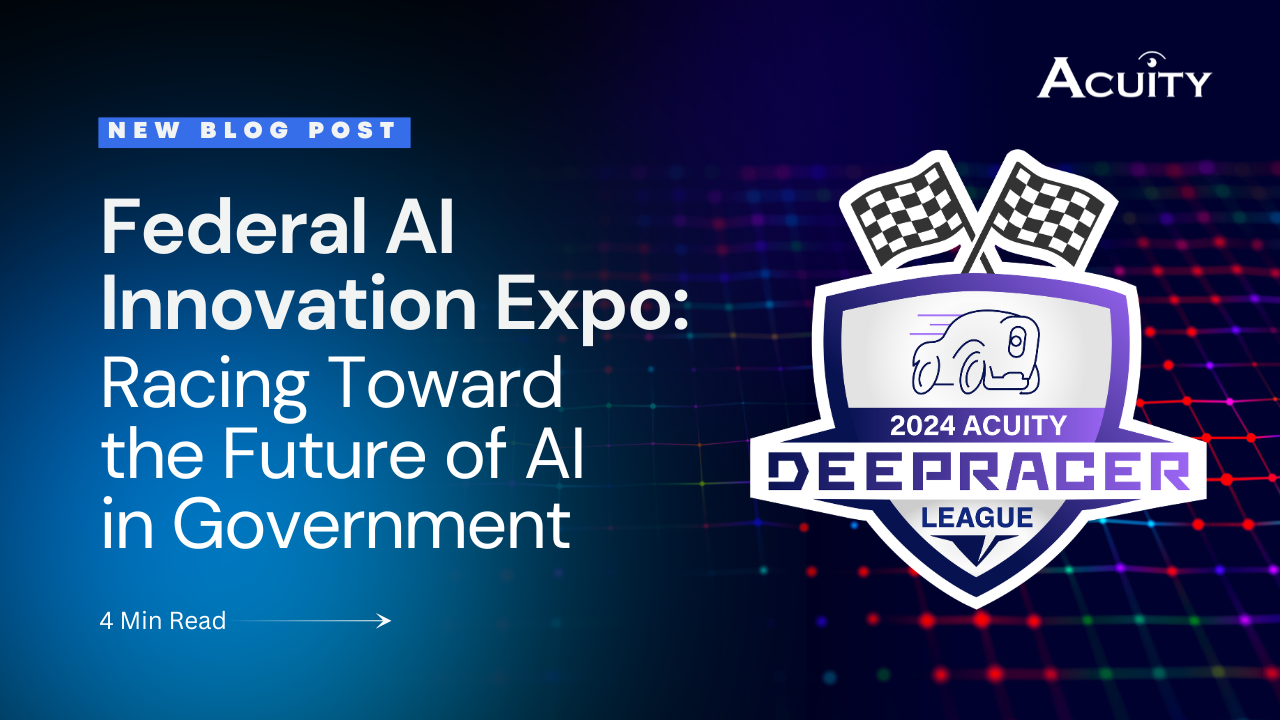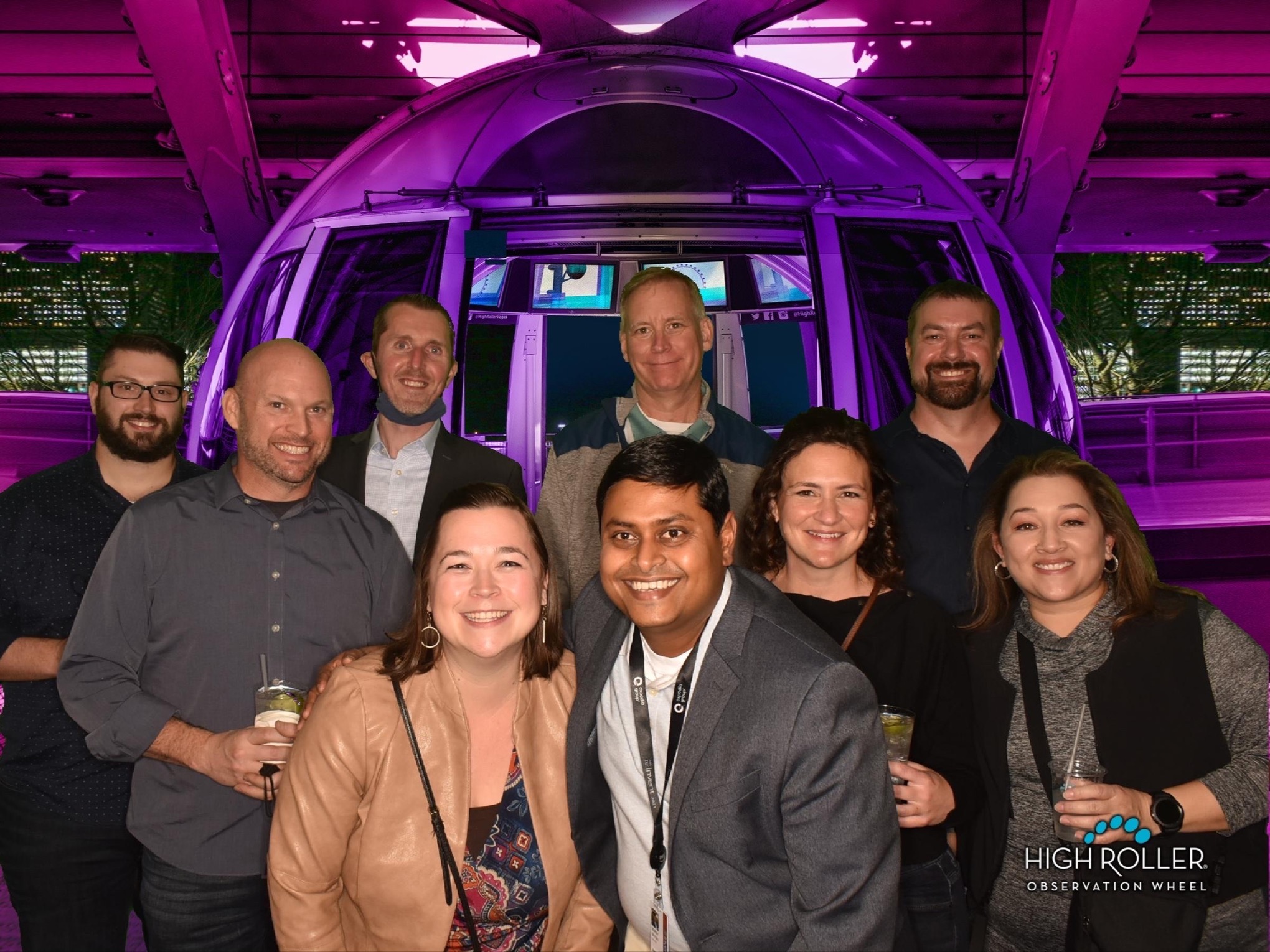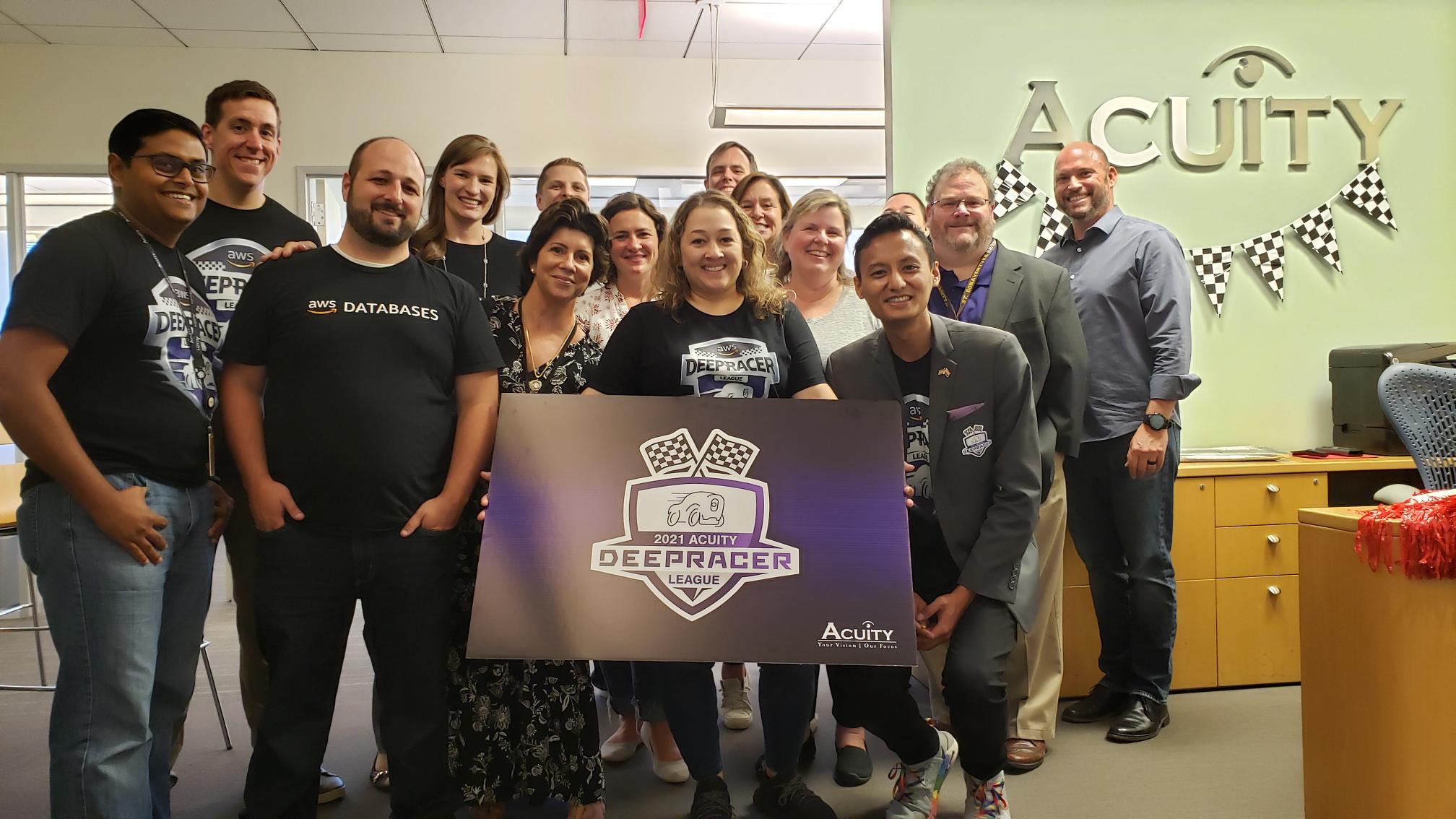GenAI: Poised To Be the Next Big Thing in the Public Sector
The wheel. The printing press. The steam engine. The internet. These are some of the inventions that have revolutionized how people work. Generative Artificial Intelligence (GenAI) is set to be the next item on this list. Across industries, people are finding ways to leverage GenAI to streamline and automate their processes. However, government agencies have specific needs and requirements when it comes to technology. So, how is GenAI impacting the public sector? Will it help government do more with less? This was the hot topic at the public sector-focused AWS Summit in Washington, DC, and it is driving the efforts of technology experts at Acuity.
What is GenAI, again?
GenAI is the catch-all name for technologies that quickly generate new content by learning from a large database of examples. While the term has been around for more than a decade, OpenAI thrust GenAI into the spotlight with the release of ChatGPT in 2022. Since then, GenAI seems to be everywhere. It is being adopted across industries, highlighted at conferences, and discussed endlessly in technology media. GenAI integrates with other technologies to automate and streamline workflows, making it intriguing to anyone interested in efficient ways of working—and that certainly includes government agencies.
Building the foundation for federal use
Government entities recognize the technology’s potential to help with repetitive tasks, brainstorming and idea generation, and document translation. To leverage GenAI safely and effectively, the first step has been to establish guidelines for using these new tools. For example, the October 2023 Executive Order on Safe, Secure, and Trustworthy Development and Use of AI emphasizes safety and security. The Office of Personnel Management (OPM) guidance on the responsible use of GenAI within the federal workforce highlights the potential of GenAI to improve public service delivery by enhancing creativity, efficiency, and productivity among federal employees.
Similarly, the U.S. Government Accountability Office (GAO) has noted GenAI’s potential applications across fields including government operations, and the Office of Management and Budget (OMB) encourages federal agencies to find ways to use GenAI responsibly, with safeguards in place.
Safeguards are important because of the risks inherent in the use of GenAI. The GAO Science & Tech Spotlight categorizes these challenges like this:
- Trust and oversight concerns. GenAI has the capacity to respond to harmful instructions if bad actors have access to the systems.
- False information. Because GenAI tools pull content from sources that may not be accurate, they can contribute to the spread of disinformation.
- Economic issues. Systems can be trained on copyrighted or sensitive data without the owner’s permission or knowledge.
- Privacy risks. GenAI systems may be unable to remove sensitive or personally identifiable information.
- National security risks. Sensitive information could be stored and misused. Also, adversaries could leverage GenAI for cyberattacks and other bad actions.
Despite the risks, initiatives are taking off around the federal government to take advantage of GenAI technology. For example, the Department of Homeland Security has established the AI Corps to bring in top experts to leverage AI to fight drug trafficking and child exploitation, improve cybersecurity and disaster response, and streamline immigration services. To make sure this important work gets done safely, government and industry must continue to combat these risks together. It requires a full commitment both to securing the systems and to vetting created content for accuracy and privacy.
Exploring public sector GenAI at the AWS Summit
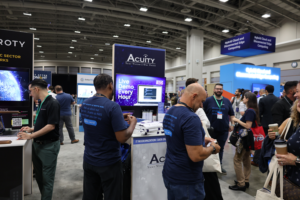
GenAI took the spotlight at the AWS Summit held in June in Washington, DC. The event brought the public sector technology community together to explore the latest tech trends. Speakers addressed both the potential and the risks of GenAI for government, and attendees had the opportunity to see GenAI solutions in action, including the newest innovation from Acuity.
Acuity is an AWS Advanced Partner in the Public Sector and Services programs and an Exhibit Sponsor for this year’s event. At the Acuity booth, technology experts demonstrated Acuity’s GenAI powered chatbot.
Acuity leverages GenAI to create and deploy applications
Acuity’s technical experts are always looking at the technology landscape and envisioning new ways to help our federal clients. One recent project asked, “What could you accomplish with an intelligent, GenAI-powered chatbot dedicated to helping deploy new AWS infrastructure and applications?”
Acuity’s GenAI powered chatbot leverages Amazon Bedrock to provision infrastructure, create CI/CD pipelines, and deploy web applications—all from a single chat prompt.
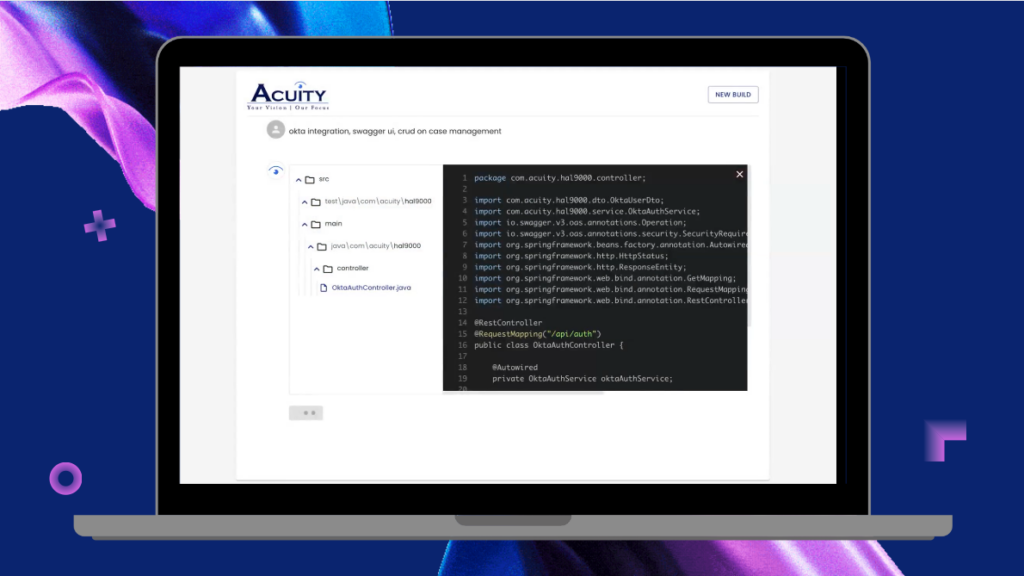
The Acuity solution makes project setup and deployment faster, more consistent, and more scalable, freeing developers to focus on higher-value activities. Centrally maintained templates of code enable development teams to slash initial project prep time and accelerate build and deployment timelines. Government development teams or contractors can leverage the tool to create applications for internal operations or customer-facing activities. This tool enables developers to significantly accelerate the process of creating new applications. Instead of spending one to three weeks bootstrapping new ideas into reality, the GenAI chatbot can reduce that time to less than ten minutes.
Acuity representatives demonstrated the chatbot throughout the AWS Summit event, to great interest. It demonstrates the company’s commitment to upskilling its team members across its expertise areas of hyperautomation, IT modernization, and data enablement. It is one way Acuity works toward automating and streamlining processes as much as possible so agencies can focus on their missions.
The transformational power of GenAI
Acuity’s GenAI chatbot is just one example of this innovative technology. GenAI is improving the way government works. It supports advances in productivity, customer experience, and reporting and data analysis. Decision making becomes easier because GenAI uses such large datasets to summarize problems and present alternatives. If government and industry continue to partner to address security, privacy, and accuracy concerns, the work they do together will be more efficient and more effective than ever.
Ready to see Acuity’s GenAI chatbot in action? View our demo video: GenAI Chatbot Demo.
